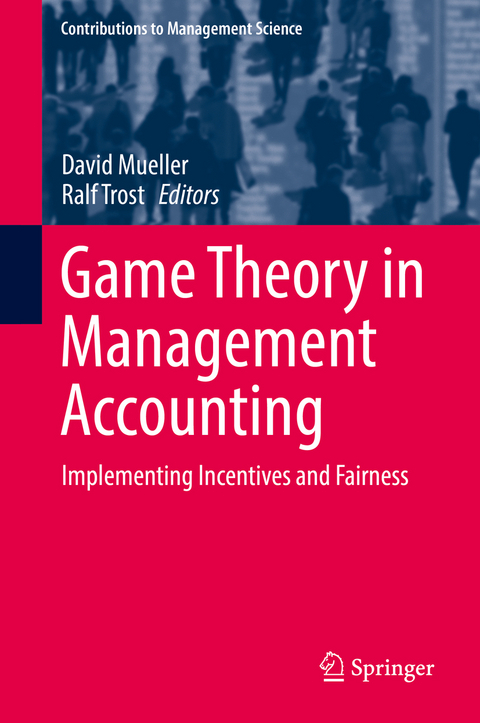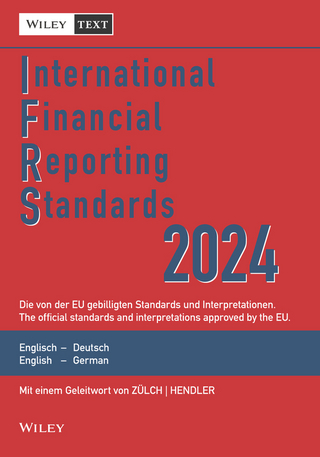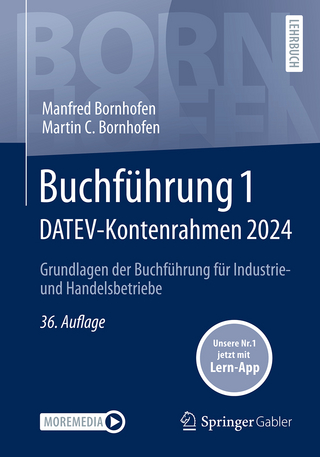
Game Theory in Management Accounting
Springer International Publishing (Verlag)
978-3-319-61602-5 (ISBN)
David Mueller is Professor of Management Accounting and Control at Brandenburg University of Technology (BTU) Cottbus-Senftenberg. His research interests are cost accounting, life-cycle costing, real options, and cooperative game theory Ralf Trost is Professor of Finance in the Faculty of Economic Sciences and Media at Ilmenau University of Technology and recived his doctorate and his habilitation at the University of Augsburg.
Part. 1. Setting Incentives for Managers: Incentive Compatibility, Similarity Rule, and Goal Congruence.- 2. Reflections on the Practical Applicability of Strategic Game Theory to Managerial Incentivation.- 3. Optimal Design of Incentive Contracts: Behavioural and Multi-Period Performance Measurement Aspects.- 4. Transfer Prices for Coordination under Decentralized Decision Making.- 5. Managerial Compensation, Investment Decisions, and Truthfully Reporting.- 6. Interorganizational Resource Sharing in Research and Development Alliances.- 7. Differences in Social Preferences: Are They Profitable for the Firm?.- 8.Applications and Potentials of Auction Theory in Management Accounting.- 9. The Use of Auction in Nurse Rostering.- Part 2: CooperativeModels - Models of Fairness and its Applications.- 10. Fair Distribution of Cooperation Gains in Supply Chains - A Justification Program from an Economic Point of View.- 11. The Pre-Kernel as a Fair Division Rule for some Cooperative Game Models.- 12. A Talmudic Approach to Bankruptcy Problems.- 13. Sharing the Costs of Access to a Set of Public Goods.- 14. The SD-prenucleolus for TU-Games: Coalitional Monotonicity and Core Stability.- 15. A Shapley Value for Games with Authorization Structure.- 16. Placing Joint Orders when Holding Costs are Negligible and Shortages are not Allowed.- 17. Corporation Tax Games: An Application of Linear Cost Games to Managerial Cost Accounting.- 18. Characteristics of the -value and the -value.- 19. The Usability and Suitability of Allocation Schemes for Corporate Cost Accounting.
| Erscheinungsdatum | 12.10.2017 |
|---|---|
| Reihe/Serie | Contributions to Management Science |
| Zusatzinfo | XIII, 450 p. 29 illus., 15 illus. in color. |
| Verlagsort | Cham |
| Sprache | englisch |
| Maße | 155 x 235 mm |
| Gewicht | 853 g |
| Themenwelt | Wirtschaft ► Betriebswirtschaft / Management ► Rechnungswesen / Bilanzen |
| Schlagworte | accounting/auditing • Auction Theory • Budgeting • Business & Management • business and management • Business & Management • Cooperative games • Corporate Fairness • cost allocation • Finance & accounting • Finance & accounting • Financial Accounting • Game Theory • Management accounting & bookkeeping • Management accounting & bookkeeping • Management Decision Making • Managerial Incentives • Operational Research • Operation Research/Decision Theory • Performance Management |
| ISBN-10 | 3-319-61602-1 / 3319616021 |
| ISBN-13 | 978-3-319-61602-5 / 9783319616025 |
| Zustand | Neuware |
| Informationen gemäß Produktsicherheitsverordnung (GPSR) | |
| Haben Sie eine Frage zum Produkt? |
aus dem Bereich


